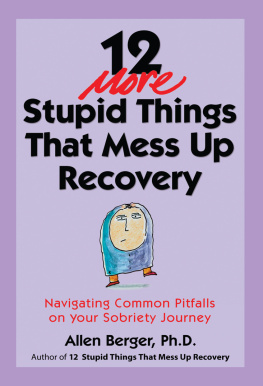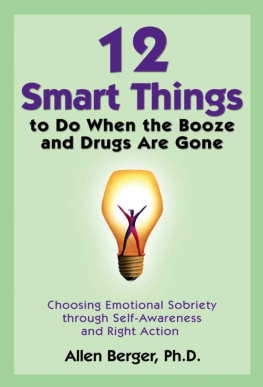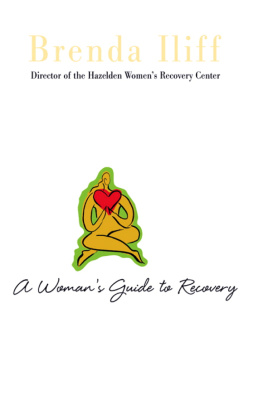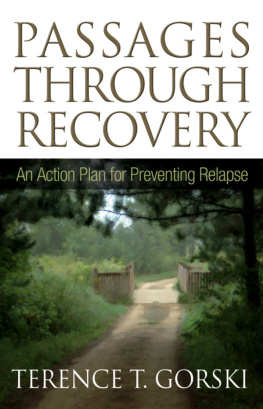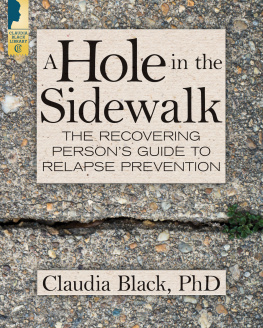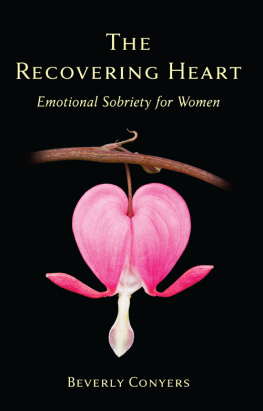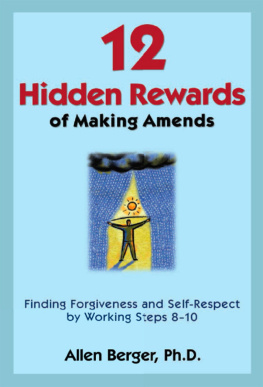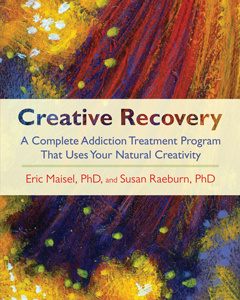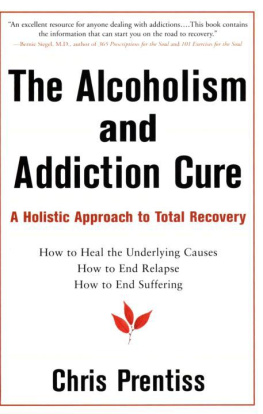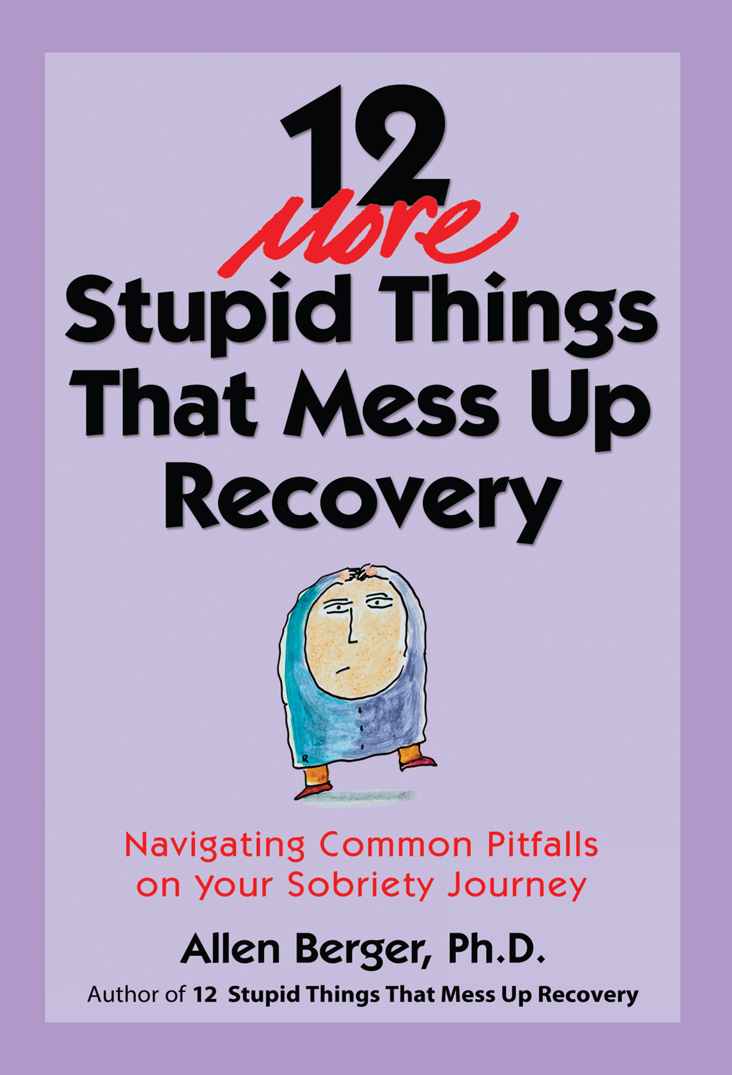

Hazelden Publishing
Center City, Minnesota 55012
hazelden.org/bookstore
2016 by Allen Berger
All rights reserved. Published 2016
No part of this publication, either print or electronic, may be reproduced in any form or by any means without the express written permission of the publisher. Failure to comply with these terms may expose you to legal action and damages for copyright infringement.
ISBN: ebook 978-1-61649-655-5
Library of Congress Cataloging-in-Publication Data is on file at the Library of Congress.
Editors notes
The names, details, and circumstances have been changed to protect the privacy of those mentioned in this publication. See the Authors note that follows.
This publication is not intended as a substitute for the advice of health care professionals.
Alcoholics Anonymous, AA, and the Big Book are registered trademarks of Alcoholics Anonymous World Services, Inc.
20 19 18 17 16 1 2 3 4 5 6
Developmental editor: Sid Farrar
Production editor: Mindy Keskinen
Cover design: David Spohn
Interior design and typesetting: Jennifer Dolezal
Dedication
To Madelynn Rose Berger, born on March 15, 2013, whose
conception and journey into this world taught me a great lesson,
as readers will see in this book.
I love you, Maddyforever!
Table of Contents
Guide
Contents
by Fred H.
I first met Allen Berger in Vermont at a fall conference of New England doctors in recovery. Each of us had been invited to present on the theme of emotional sobriety. Although our approaches were very different, they both centered on Bill W.s 1958 Grapevine article The Next Frontier: Emotional Sobriety. This seminal document describes what we do in recovery that contributes to our defective relations with other human beings and, as importantly, why we do it.
That weekend, as students of AA history, Allen and I quickly came to appreciate our deep interest, personally and professionally, in Bill W.s uncanny grasp of the human condition. A year and a half later, I was with him on a larger panel discussing his Unpacking Bill Wilsons 1956 Letter on Emotional Sobriety at the annual conference of International Doctors in Alcoholics Anonymous. I feel blessed to have worked with someone who brings to his writing such a unique combination of professionalism, knowledge of Twelve Step principles, and the ability to articulate the practical lessons hes learned as teacher, therapist, sponsor, and human being. Which is why I am especially delighted to have the opportunity to write the foreword to Allens newest addition to his growing list of important contributions to the body of recovery literature.
As with his previous works, this book somehow makes the problem of addiction less baffling and its Twelve Step solution less mysterious. The authenticity of these twelve more stupid things is verified as soon as you read them. For me, the cautionary lessons from my own storysuch as magical thinking, private logic, reacting to the present as though its the past, spiritual pride, and self-righteousnessjumped off each page. And I was reminded in more than one instance of the work I have in front of me today. This is good stuff for both newcomers and old-timersthough, arent we all really newcomers each day?
One of the warnings in the Big Book about Step 10 is how easy it is to let up on the spiritual program of action and rest on our laurels. This human tendency is triggered by the peace of mind and serenity that our practice of the Steps promises and delivers. The memory of the powerlessness and unmanageability that Step 1 dramatically brought to our attention may have begun to fade over the horizon. Allens book gives us a comprehensive exposure to the unmanageability of a more living or real-time Step 1. When we begin to realize the various ways that we still awaken that unmanageabilityand then we begin to apply Twelve Step principles and practices to restore our physical and emotional sobrietywe find touchstones for continued growth throughout each day. That we continue to live out the unmanageability of Step 1, even in long-term recovery, is a manifestation of our disease. Therell always be a vestige of powerlessness in the slowest part of us to get well, the part of us where our twelve more stupid things have their being. And guess what? Addiction is a chronic illnesstherell always be some part of us getting well.
When you read this book, you wont wind up feeling twelve ways more stupid. Its gift will be the realization that your naivet and imperfections are simply the day-to-day problems that need your attention, so that, one day at a time, you wont have to revisit the problem that got your attention in the first place.
Fred Holmquist
Director of the Lodge Program at the Dan Anderson Renewal Center
Hazelden Betty Ford Foundation
An interesting thing happened as I was beginning to write this follow-up to my first book for Hazelden Publishing, 12 Stupid Things That Mess Up Recovery. I was struggling to find a rhythm. Id get started in a certain direction and then hit an impasse. Sid Farrar, my editor at Hazelden, sensed that I was having trouble and asked me if I needed help. Yes, I responded, feeling both relieved and embarrassed. You see, even after all this time, its hard for me to ask for what I need and let someone else see that I need help.
Sid was able to arrange for writer-editor Vince Hyman to help me develop the early drafts of this book, and I was immediately heartened. Vince had worked with me on 12 Smart Things to Do When the Booze and Drugs Are Gone. He gets my work; he understands how I think and the message I am trying to convey. This creates a powerful synergy between the two of us, which brings the best out in me. Without the unwavering support I received from both Sid and Vince, this book wouldnt have become a reality, and I thank them for their faith in my work.
I also want to acknowledge the contributions from DocDawn and Dr. Harry. They are paving the way for the next generation of medical doctors to be more informed about recovery. Herb Kaighan and Tom McCall, my sponsor, also made several significant contributions to this book, and Im grateful for their love and support.
The recovery odyssey is immensely rewardingbut it can also be difficult at times. Youll have moments when you feel serene and grounded, but there will also be times when youll feel lost, confused, or overwhelmed. On this adventure you will encounter many twists and turns, and some rough and challenging terrain. There will even be times of so much discomfort, struggle, and frustration that youll feel like giving up and wonder if the journey is worth it. But if you stay the course, youll also be lifted to great heights and witness some breathtaking vistas.
Its quite possible that the recovery trek will feel like one of the most difficult journeys of your life. But I can promise you this much: if you can stay the course, its a journey that is worth taking and will change you forever in ways you cannot yet imagine.
Working a fearless and thorough recovery program will deepen your understanding of yourself and your important relationships. You will realize your true potential and see life from a new perspective. On this trek youll discover that what we

